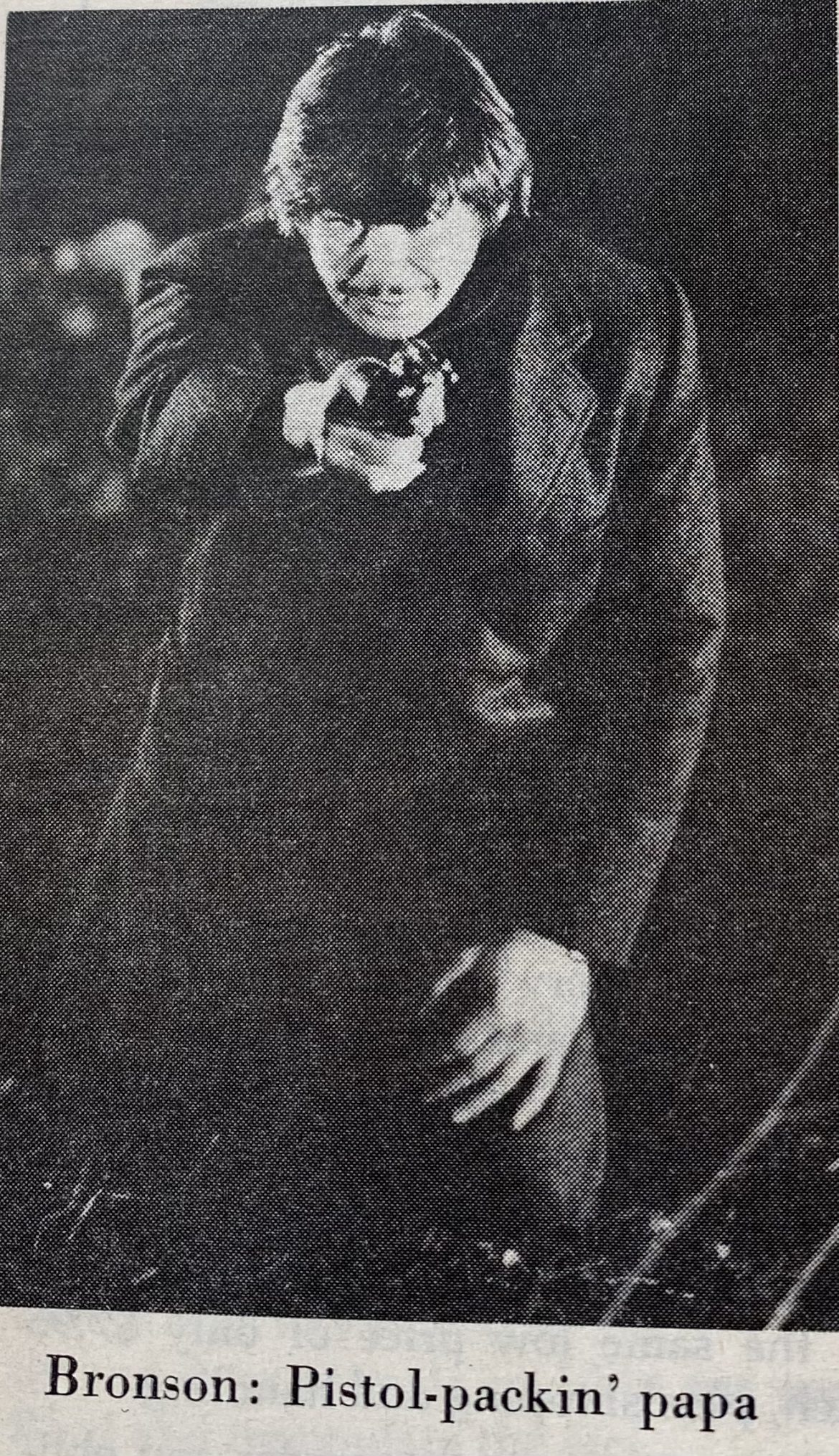Original Publication – Newsweek, August 26, 1974
Death Wish is the film to see if you’ve just been raped, mugged, or ripped off. The most controversial movie since “The Exorcist,” it is obviously a catharsis for thousands of viewers – the first movie to hook its audience by cynically manipulating the average city dweller’s feelings of frustration and fear of crime, especially rape and mugging. Every law-and-order type – including many who may not have considred themselves such – is bound to be captivated by this story of a “bleeding-heart liberal” turned vigilante killer.
Action star Charles Bronson (Newsweek, May 29, 1972), one of the world’s highest-paid film actors at a reputed $20,000 a day, plays Paul Kersey, an architect (of tacky taste judging from the décor of his home and office) who is transformed into a manic vigilante after his wife dies and his daughter winds up catatonic from a street gang’s assault. So Kersey, a conscientious objector during the Korean War but a crack shot nonetheless, becomes a pistol-packin’ papa, the scourge of alleys, parks and subways and the darling of the media – vigilantism even makes the cover of Newsweek.
Muggers: Director Michael Winner, an Englishman, has created a simplistic urban Western of good guys and bad guys set in a New York that will conform to every paranoid’s crime fantasies. Muggers lurk everywhere; Winner makes sure they come in all colors so Broson can be an equal-opportunity killer. The action is taut, the suspense runs high, and from the very beginning, when the wife and daughter are burtally and explicitly assaulted, Winner plays to the fears and emotions of the audience. In doing so he scrambles his logic. There are never any witnesses to Bronson’s cannonades, and none of the muggers carries anything but a switchblade until well toward the end of the film, when one shoots him and thereby provides police with the clue that finally identifies the vigilante.
Vincent Gardenia is excellent as the tough, smart detective assigned to the case. But it seems to be the sorry legacy of Watergate that no “sophisticated” movie today depicts the police as anything but bought or politicians as anything but dirty. In this case, when the politicos realize that the vigilante’s spree has brought the city’s crime rate down significantly, they tell Gardenia to let Bronson go free – while denying to the media that the vigilante has become the city’s first real crime deterrent.
The message of the film then becomes clear. Tired of those junkies and rapists threatening you? Well, why don’t you pick off a few? You won’t be a murderer, you’ll be helping to preserve law and order, and best of all, you won’t get punished. Such inflammatory cynicism seems to be the sort of thing today’s audiences want – they’re cheering “Death Wish” everywhere. Which American metropolis will have the honor of producing the first spin-off vigilante?
This article is typed from the original material. Please excuse any errors that have escaped final proofreading.





No Comments